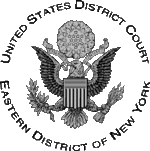 Wiki90
Wiki90
Wiki90: 90s Style Encyclopedia on the Web

|

|

|

|




Elektra Records Co. v. Gem Electronic Distributors, Inc.
Today we will talk about Elektra Records Co. v. Gem Electronic Distributors, Inc., a topic that has captured the attention of millions of people around the world. Elektra Records Co. v. Gem Electronic Distributors, Inc. is a fascinating topic that has generated a great debate in today's society. From its impact on history to its relevance today, Elektra Records Co. v. Gem Electronic Distributors, Inc. has sparked endless questions and reflections. In this article, we will explore different aspects of Elektra Records Co. v. Gem Electronic Distributors, Inc., from its origins to its possible implications in the future. Whether you are an expert in the field or are simply interested in learning more about it, this article is for you. So get ready to immerse yourself in the exciting world of Elektra Records Co. v. Gem Electronic Distributors, Inc. and discover everything this theme has to offer.
| Elektra Records Co. v. Gem Electronic Distributors, Inc. | |
|---|---|
 | |
| Court | United States District Court for the Eastern District of New York |
| Full case name | Elektra Records Co. v. Gem Electronic Distributors, Inc. |
| Decided | June 29, 1973 |
| Docket nos. | 73-cv-772 |
| Citation(s) | 360 F. Supp. 821 |
| Court membership | |
| Judge(s) sitting | Edward Raymond Neaher |
Elektra Records Co. v. Gem Electronic Distributors, Inc., 360 F. Supp. 821 (E.D.N.Y. 1973), was an important case before the United States District Court for the Eastern District of New York that concerned copyright infringement, which held that secondary persons or entities could be liable for that tort under certain circumstances, and is also called the "'make-a-tape' case".
The facts were that:
a record shop rented sound recordings to customers who would also purchase blank tape and then use a recording machine on the store premises to copy the rented recording onto the blank tape. The store owner's knowledge of the likely use of the blank tape was patent.
— Jane Ginsburg, Professor, Columbia Law School
Federal courts have held that secondary tort liability exists when:
enabling or inciting another to infringe, at least when the enabler knows that her conduct will result in infringement. Decisions dating back several decades recognize that one who supplies the means to infringe, and knows of the use to which the means will be put (or turns a blind eye), can be held liable for contributory infringement. In the early cases, however, the relationship between the supplier and the user of the means was sufficiently close, that there could be little doubt of either the knowledge or the nexus between the means and the infringement.
— Jane Ginsburg, Professor, Columbia Law School
Knowledge of the infringement of the copyright is the essential element that Elektra Records developed.
Impact
This case was used as a precedent for the US Supreme Court cases of Sony Corp. of America v. Universal City Studios, Inc., 125 S. Ct. 2764 (1984) and MGM Studios, Inc. v. Grokster, Ltd., 464 U.S. 417 (2005).
See also
References
- ^ Elektra Records Co. v. Gem Electronic Distributors, Inc., 360 F. Supp. 821 (E.D.N.Y. 1973).
- ^ a b c d Jane Ginsburg, "Secondary Liability for Copyright Infringement in the U.S.: Anticipating the Aprés-Grokster", found at Secondary Liability for Copyright Infringement in the US, from Columbia Law School website Archived 2006-09-14 at the Wayback Machine. Retrieved December 13, 2008.
External links
- Text of Elektra Records Co. v. Gem Electronic Distributors, Inc., 360 F. Supp. 821 (E.D.N.Y. 1973) is available from: Google Scholar Justia


